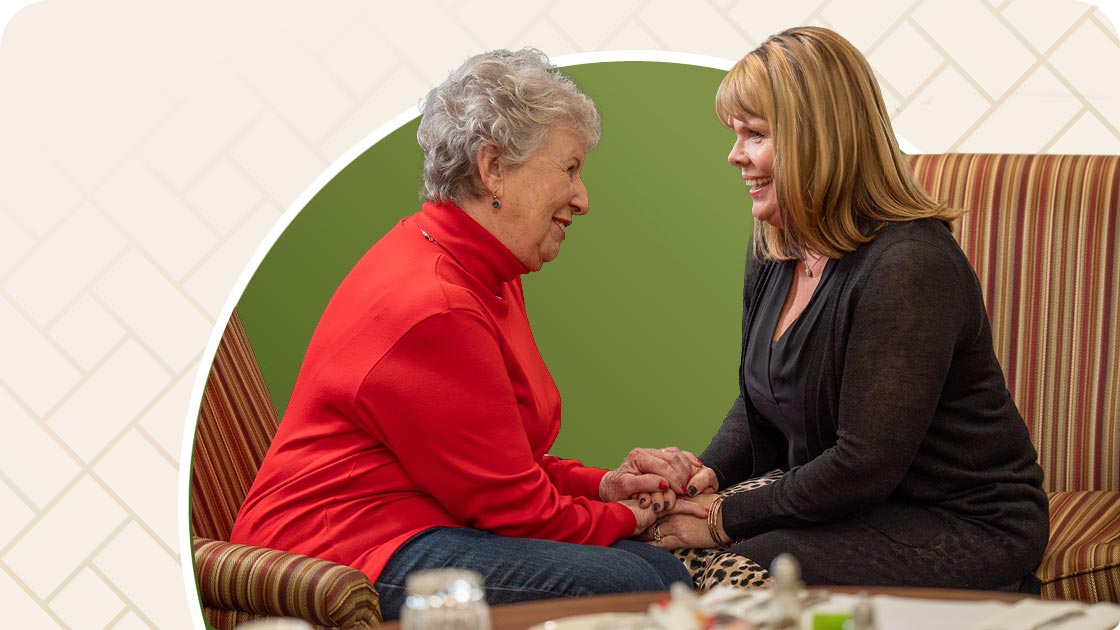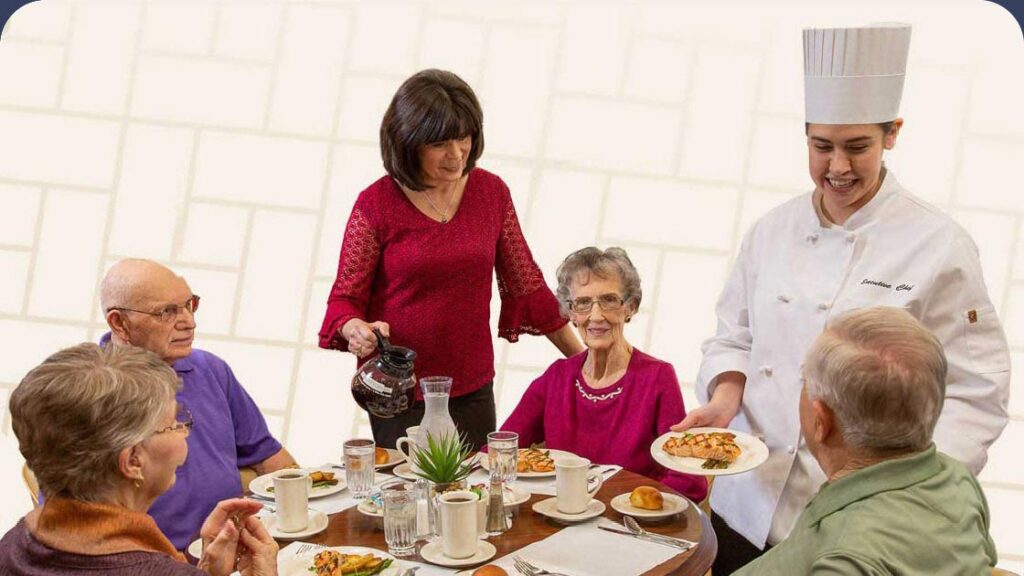More results...
Feb 21, 2024|Senior Living

Home. It’s not a place – it’s a feeling. And that feeling grows stronger as we age. Three out of four adults over 50 say they want to live in their own homes as the years go on. But when daily life becomes more difficult, many find they need additional support to age in place successfully.
So the question arises: how do we make “home” work for our changing needs? Balancing independence with the need for support can be a challenge, leaving many families feeling overwhelmed and unsure where to turn. Fortunately, there’s a solution that allows your loved one to age in the comfort of their home while receiving the care and assistance they deserve. In-home care services and hired caregivers can lend support in a variety of ways, from offering simple companionship to helping with basic tasks and even providing specialized medical care.
Learn more about these options, how to find in-home care services and how to decide which one is right for your loved one. Before starting the conversation, keep in mind that aging in place requires a home that’s easy to maintain, safety features that promote mobility and prevent falls and readily available senior support network of caregivers and health care professionals.
Statement of Fairness: Considering senior living options for yourself or a loved one? We’re here to help at every step. And even though we specialize in Independent and Assisted Living communities, our goal is for YOU to find your best path to gracious retirement living, and part of how we achieve that is by providing reliable information on all types of senior living, not just the ones we offer. When our offerings serve as useful illustrations to a specific topic, you can find that information in the attached sidebar.
Home care professionals can provide occasional, daily or round-the-clock assistance. Depending on your loved one’s needs, you can hire a personal care assistant and/or a home health care professional.
Personal care assistants can make your loved one’s life safer and easier. These caregivers can help with everyday tasks like:

Their presence in the house and friendly conversation help to alleviate the symptoms of social isolation. But one thing these caregivers cannot provide is medical assistance. That’s where home health care comes in.
Help with the everyday things people do (activities of daily living):
Meal preparation:
Light housekeeping:
Transportation:
Money management:
Pet care:
If your loved one requires frequent medical assistance due to chronic conditions or is recovering from surgery, an accident, illness, stroke or heart attack, their doctor will recommend in-home health care. Because these caregivers are specially trained and certified health care professionals, they can administer treatments available in skilled nursing facilities.
It’s a natural concern, and there’s no one-size-fits-all answer. However, some signs that your loved one might benefit from additional support include:
A dedicated caregiver is so much more than the help they provide. They provide peace of mind to family members who know their loved one is getting personalized attention and support. Family caregivers need respite from their responsibilities. Hiring in-home help takes the worry and guilt off your shoulders.
Social isolation affects older adults both emotionally and physically. Seeing an in-home caregiver come through the door can bring a sigh of relief. That person is a welcome companion to an older adult who looks forward to conversation and a friendly smile.

Older adults as well as their caregivers enjoy a higher degree of safety, security and independence when receiving in-home care.
Receiving frequent personalized medical attention promotes better health outcomes than waiting for care between doctor appointments. Patients heal more quickly if resting in the comfort of their familiar homes. Consistent nutrition boosts overall health.
Throughout the U.S., the average cost of personal assistance care is $4,957 per month. In-home health care is higher, averaging $5,148 every month. The cost of care will vary, depending on where you live. As expensive as these services seem, you will be paying less than if your loved one was living in an assisted living community or a skilled nursing facility.
If a doctor prescribes home health care and a senior has Medicare Part A (hospital insurance) and/or Part B (medical insurance), Medicare will cover eligible costs. Veterans can finance in-home care from their Aid and Attendance benefit.
Even with the best in-home care services, aging in place has its disadvantages. Here are four drawbacks that people report most often.

You’ll find the right balance of independence and security at our independent senior living community in North Logan, Utah. Your monthly rent includes fine dining, enriching activities, fun events, easy transportation and an emergency monitoring system that’s second to none. If you ever need extra assistance, you can hire a third-party home health care provider. We take care of the rest.
Talk to people you trust.
No matter which route you go in hiring in-home care services, proceed with caution.
You’re probably seeing more adult day services in your neighborhood. These programs offer companionship, personal care, social activities, meals and exercise, allowing family caregivers to go to work and catch up on other responsibilities.
Many senior living communities welcome older adults on a short-term basis. In addition to the respite care they provide, it’s a good opportunity to test out how well your loved one could adapt to this living situation.
Consult this checklist to determine what kind of help you need and how many hours are required. Share your concerns honestly with the in-home caregiver.
Can your loved one:
Are they:
Do they have:
Download needs checklist here.
An in-home personal care assistant or home health caregiver can bring tremendous relief, but it isn’t the right solution for everyone. Once you understand what in-home care can offer and how their services match up to your loved one’s needs, you’ll be ready to start your search for a reliable, compassionate caregiver.
Apr 24|Senior Living
Jan 10|Senior Living
Oct 20|Senior Living